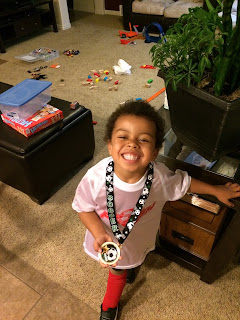Self-Care
 |
| https://unsplash.com/s/photos/airplane-mask |
Putting your own oxygen mask first doesn't show a lack of love or care for others, instead it shows care and love for yourself. If you were to run out of oxygen, you couldn't help others with their masks, correct? It's important for us to love ourselves and have a desire to take care of ourselves so that we can be available and qualified to lovingly care for others. This most definitely includes being able to parent our children. You might have noticed that when you are hungry, tired, disengaged, or don't have a personal support system, you cannot focus on providing for others including your children.
The National Extension Parent Education Model (NEPEM) is a model developed in 1994 intended to provide commonalities for individuals involved in parenting education. This specific course has seven categories or themes for focus. I will be discussing a few over the next couple of blog posts. Number 1 on the list is Care for Self. Thus, it seems to me that as parents this area must be recognized and enhanced before we can attempt to tackle other topics such as understanding and developing children.
According to Waterford.org (2020), The National Institute of Mental Illness (NAMI) claims that all self-care habits fall under six categories: physical, psychological, emotional, spiritual, social, and professional. A task that was part of my undergraduate studies during a "Care for Self" parenting module was to take a personal and relationship inventory. This inventory asked me to rate certain questions on a scale as to whether it was something I "always did" all the way to "I never did". Questions ranged from "How healthy is your social circle?", "Do you enjoy hobbies regularly?", and "Do you eat healthy?" This allowed me to have a beginning point to evaluate where my strengths are in caring for myself and also helped me to see where perhaps I could take weaker spots and turn them into opportunities for improvement. There are many quizzes and questionnaires available on internet search engines that can give you a starting point if you are unsure of what your current self-care levels are.
Once you are well on your way to recognizing and pursuing self-care, you can improve your parenting. In 1998, The Arbinger Company published an article titled, The Parenting Pyramid. The pyramid is five levels built upon each other that (if followed) will help parents to parent more effectively. This is done by recognizing what we can do to help things go well instead of spending so much time figuring out how to fix things that are going wrong while navigating the world of parenting. While I won't go into specific details on each pyramid level, I'd like to take the time to discuss the bottom two foundational levels of the pyramid. As you can see from the graphic below, the lowest level is titled, "Personal Way of Being" and the next one above it is, "Husband/Wife Relationship". I believe that both of these levels are influenced by whether or not you are practicing proper self-care. Something that The Arbinger Company (1998) feels strongly about is the idea that "The roots of effective parenthood lie deeper than anything we DO; the roots of effective parenthood lie in how we ARE" (p. 6). Take the time as an individual to focus on who you are as a person and make yourself as well-rounded and healthy as possible. Next, move up a level and work to create a stable, healthy relationship with your marriage partner. As you embark upon trying to live the Parenting Pyramid, you will increase your capacity to improve, strengthen, and teach your children and grandchildren. Don't be afraid to take care of yourself!
If you are interested in obtaining more information about self-care strategies and resilience, I am including this great handout that was distributed through the Federal Occupational Health (FOH) which is a non-appropriated agency within the Program Support Center of the U.S. Department of Health and Human Services.
Just as it is critical for us to put on our own oxygen mask while on an aircraft experiencing an emergency in order to help our minor or elder flying companions; it is also critical for us to take care of ourselves on a daily basis in order to properly parent our children. Sometimes the idea of taking time for us seems selfish or like a waste of time (Gardner, 2020). We might feel unable or inadequate to even begin a journey to better take care of us. However, we have the ability and opportunity to reach out to others to ask for assistance. Some of those helpers might be family members, friends, mentors, doctors, therapists, or church leaders. Most importantly, our Heavenly Father and our Savior Jesus Christ will always be there to provide comfort and revelation for our specific needs.
References
Arbinger Company. (1998). The Parenting Pyramid. https://content.byui.edu/file/91e7c911-20c5-4b9f-b8fc-9e4b1b37b6fc/1/Parenting_Pyramid_article.pdf
Department of Health and Human Services. (n.d.) Strategies for self-care and resilience. http://www.foh4you.com/media/1453994/self-care.pdf
Gardner, M. (2020 September). A 3-step guide to maintaining your mental health. Church of Jesus Christ. https://www.churchofjesuschrist.org/study/ensign/2020/09/young-adults/a-3-step-guide-to-maintaining-your-mental-health?lang=eng
Waterford. (2020, March 31). A guide to self-care for parents: Why making time for yourself matters. https://www.waterford.org/education/self-care-for-parents/



Comments
Post a Comment